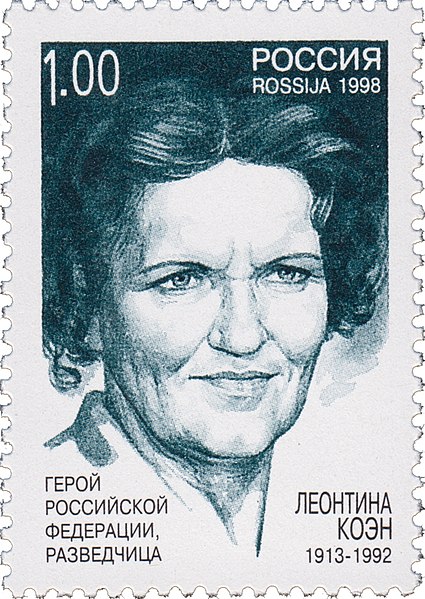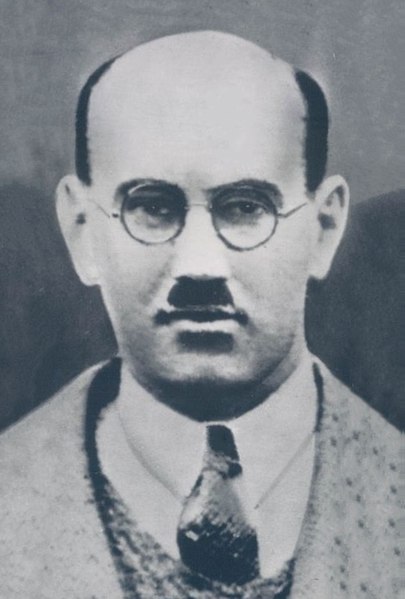Klaus Emil Julius Fuchs was a German theoretical physicist and atomic spy who supplied information from the American, British, and Canadian Manhattan Project to the Soviet Union during and shortly after World War II. While at the Los Alamos Laboratory, Fuchs was responsible for many significant theoretical calculations relating to the first nuclear weapons and, later, early models of the hydrogen bomb. After his conviction in 1950, he served nine years in prison in the United Kingdom, then migrated to East Germany where he resumed his career as a physicist and scientific leader.
Police photograph of Klaus Fuchs (c. 1940)
Poynting Physics building at the University of Birmingham
Fuchs's Los Alamos ID badge
The grave of Klaus Fuchs and his wife Margarete in Berlin
Atomic spies or atom spies were people in the United States, the United Kingdom, and Canada who are known to have illicitly given information about nuclear weapons production or design to the Soviet Union during World War II and the early Cold War. Exactly what was given, and whether everyone on the list gave it, are still matters of some scholarly dispute. In some cases, some of the arrested suspects or government witnesses had given strong testimonies or confessions which they recanted later or said were fabricated. Their work constitutes the most publicly well-known and well-documented case of nuclear espionage in the history of nuclear weapons. At the same time, numerous nuclear scientists wanted to share the information with the world scientific community, but this proposal was firmly quashed by the United States government. It is worth noting that many scientists who worked on the Manhattan Project were deeply conflicted about the ethical implications of their work, and some were actively opposed to the use of nuclear weapons.

Klaus Fuchs, arguably the most important of the identified "atomic spies" for his extensive access to high-level scientific data and his ability to make sense of it through his technical training
Lona Cohen on Russian stamp
Morris Cohen on Russian stamp
Alan Nunn May, University of Cambridge physicist







